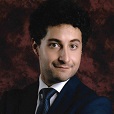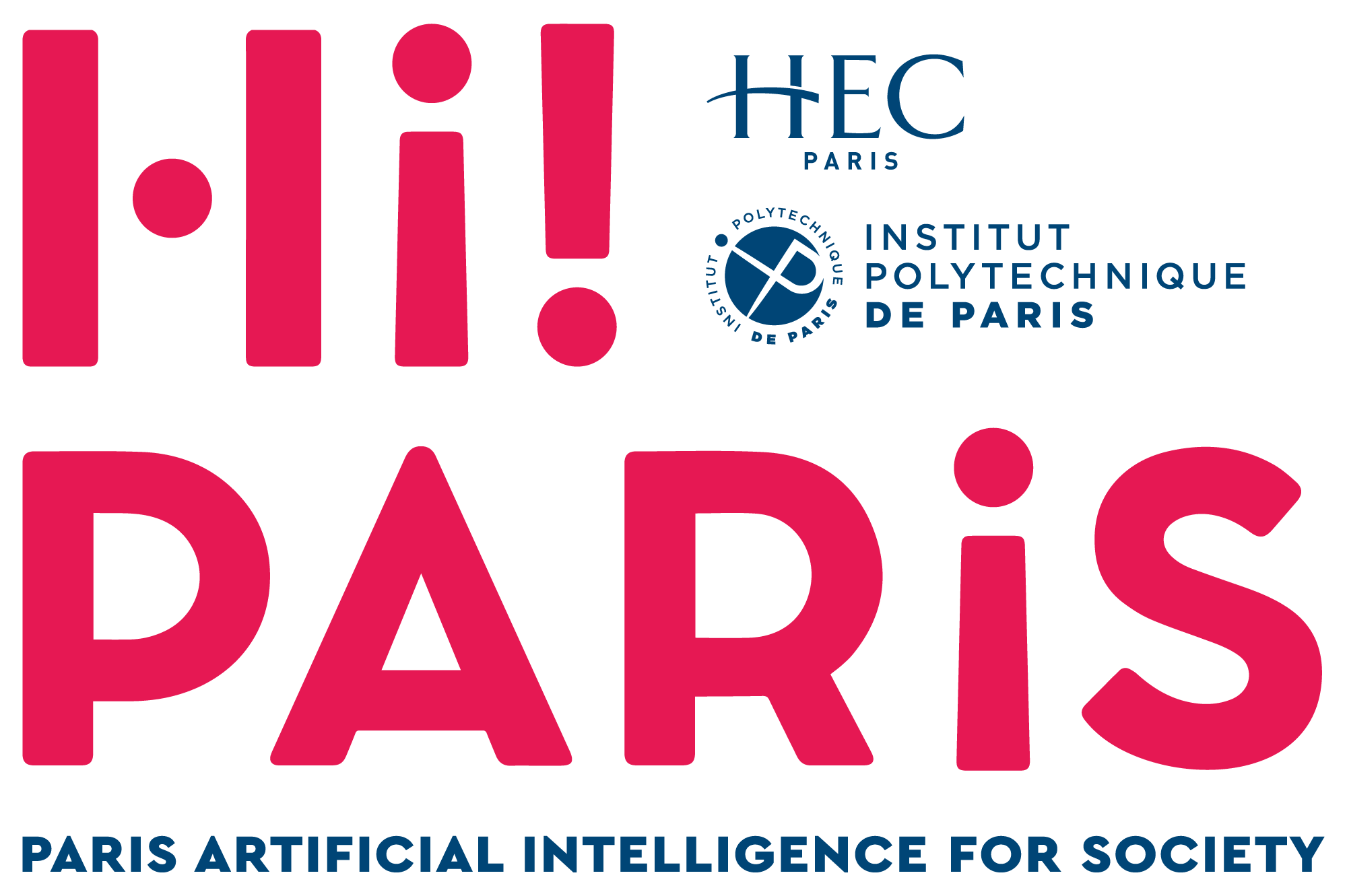Hi! PARIS Chair holders 2021
Hi! PARIS is pleased to announce the recruitment of the Hi! PARIS Chair holders 2021. Our 9 Hi! PARIS Chair holders will be funded for their research and teaching project for the next 3 years, starting from September 2021.
Our Hi! PARIS Fellows will be involved in courses linked to AI / Data at HEC Paris or IP Paris. They will participate actively in the scientific activities of Hi! PARIS (events, communications such as meetup, round table, meeting with corporate donor, interviews, etc.).
Congratulations to our Hi! PARIS Chair holders !
- 1 Senior Professor at IP Paris: Damien Ernst (Telecom Paris)
- 5 Assistant Professor at HEC Paris : Pablo Baquero, Julien Grand-Clément, Klaus Miller, Aluna Wang, Matthew Yeaton see article on HEC website
- 2 Assistant Professor at IP Paris: Marylou Gabrié (École polytechnique), Enzo Tartaglione (Telecom Paris)
- 1 Associate Professor at IP Paris: Roland Rathelot (ENSAE Paris)

Pablo M. Baquero
Assistant Professor @HEC Paris
Research field: Law, Smart Contracts
Bio: Pablo conducts research on artificial intelligence and legal issues concerning ethical innovation. He recently published his first book “Networks of Collaborative Contracts for Innovation”, examining how companies willing to pursue collaborative innovation projects structure their contractual agreements. He also investigates how the “black box” of algorithms could be designed to comply with law and regulations. Pablo holds a PhD in Law from the University of Cambridge, a LL.M. from Harvard Law School and a LL.B. from the Federal University of Rio Grande do Sul, Brazil. He used to work as a lawyer in France and in Brazil, dealing with commercial arbitration, contractual transactions, and foreign investments. He has also been a consultant for the Doing Business Project by the World Bank of Washington DC.

Damien Ernst
Professor @IP Paris, Telecom Paris
Research field: Reinforcement learning applied to Energy
Bio: Damien has joined Télécom Paris as an invited Professor in December 2021, as affiliated with Hi-Paris. He is a full Professor at the Department of Computer Science and Electrical Engineering at the University of Liège and the Chief Scientific Officer at Haulogy, a company specialised in the creation of intelligent computer software for the energy sector. Prof. Ernst is well known for his work in reinforcement learning, a subfield of artificial intelligence (AI), and the application of these techniques to the many decision-making problems faced by the electrical industry. He has also worked these latter years on the computation of long-term energy planning problems and has advocated, using computational techniques, for the creation of several new disruptive models (an electrical global grid, remote renewable energy hubs, etc.) for speeding up energy transition. He has received numerous awards for his work, including the prestigious Blondel Medal in 2018.

Marylou Gabrié
Assistant Professor @IP Paris, École polytechnique
Research field: Statistics AI
Bio: Marylou obtained her PhD in Physics from École Normale Supérieure in 2019, after which she moved to New York for a shared young faculty position between the Center for Data Science of New York University and the Center for Computational Mathematics of the Simons Institute. Her research lies at the boundary of machine learning and statistical physics. She uses statistical physics to understand machine learning successes and adapts machine learning technics for scientific computing. She received the L’Oréal Fellowship for Women in Science in 2018.

Julien Grand-Clément
Assistant Professor @HEC Paris
Research field: AI and healthcare
Bio: Julien conducts research on medical decisions automation using machine learning and optimization. Julien completed his PhD with the IEOR (Industrial Engineering and Operations Research) Department at Columbia University in 2021, and his M.Sc. at Ecole Polytechnique (Paris) in 2016. His latest collaborations include robust allocations of beds in intensive care units with hospitals in California and interpretable ventilator allocation guidelines for hospitals in New York City.

Klaus M. Miller
Assistant Professor @HEC Paris
Research field: Quantitative Marketing
Bio: Klaus teaches Quantitative Marketing and Artificial Intelligence in Marketing. Klaus’ research explores pricing, advertising, and customer management issues in the digital economy. He often collaborates with the industry to answer research questions at scale. Currently, his work is mainly focused on data privacy, fairness, and the monetization of digital content. Specifically, he answers the question: does it pay to be fair? His research indicates that exploiting customers’ biases may backfire in the long term due to customer retaliation; and that being fair (not exploiting the biases) is even more profitable for firms over time. Klaus also investigates the best way businesses can use online ads, or another source of revenue, while preserving data privacy. This research calls for finding new forms of monetization for digital content beyond online advertising.

Roland Rathelot
Associate Professor @IP Paris, ENSAE Paris
Research field: Econometrics, Applied Econometrics
Bio: Roland is an applied microeconometrician. His scientific approach is to combine large and novel datasets coming from administrative or internet sources with state-of-the-art data science and econometric methods to answer questions about the way agents make search decisions. The most important application in his current research agenda is about search on labour markets, for which he has worked on collecting detailed new data on individual search behaviour. How do individuals make decisions when they search? Can we design automatic tools to guide their decisions and improve individual and collective welfare? Answering these questions requires new data, new empirical methods combined with the discipline of novel economic theoretical frameworks. Some of his work is also dedicated to producing new empirical techniques to allow applied researchers overcome methodological issues posed by the structure of the data that are becoming available.

Enzo Tartaglione
Assistant Professor @IP Paris, Telecom Paris
Research field: Machine learning for computer vision
Bio: Enzo received the joint MS degree in Electronic Engineering at Politecnico di Torino and Politecnico di Milano, cum laude. The same year, he also received a magna cum laude MS in Electrical and Computer Engineering at University of Illinois at Chicago. In 2019 he obtained the PhD in Physics at Politecnico di Torino, cum laude, with the thesis “From Statistical Physics to Algorithms in Deep Neural Systems”. His main interests involve compression, sparsification, pruning and quantization of deep neural networks, privacy-aware learning and data debiasing.

Aluna Wang
Assistant Professor @HEC Paris
Research field: Accounting and Cybersecurity
Bio: Aluna received her PhD and MSc in Industrial Administration from Carnegie Mellon University, where she used to be PwC Presidential Fellow at the Digital Transformation and Innovation Center. Her research endeavors feature two major themes. One theme is to examine how information transmission mechanisms in the financial market, such as public disclosures and lending relationships, affect real economic outcomes. The other is to develop and deploy machine-learning based tools to improve our understanding of accounting data and provide intelligent solutions to real-world challenges facing financial service professionals in our rapidly changing digital landscape.

Matthew Yeaton
Assistant Professor @HEC Paris
Research field: Strategy and Computer Science
Bio: Matthew obtained his PhD in Management from Columbia University. As a strategy scholar and computational social scientist, Matthew uses AI tools such as Natural Language Processing (NLP) to analyze language and culture in social networks in order to understand how cultures and knowledge are transferred. For example, he investigates how network interventions can disrupt hate speech online without resorting to banning users.


